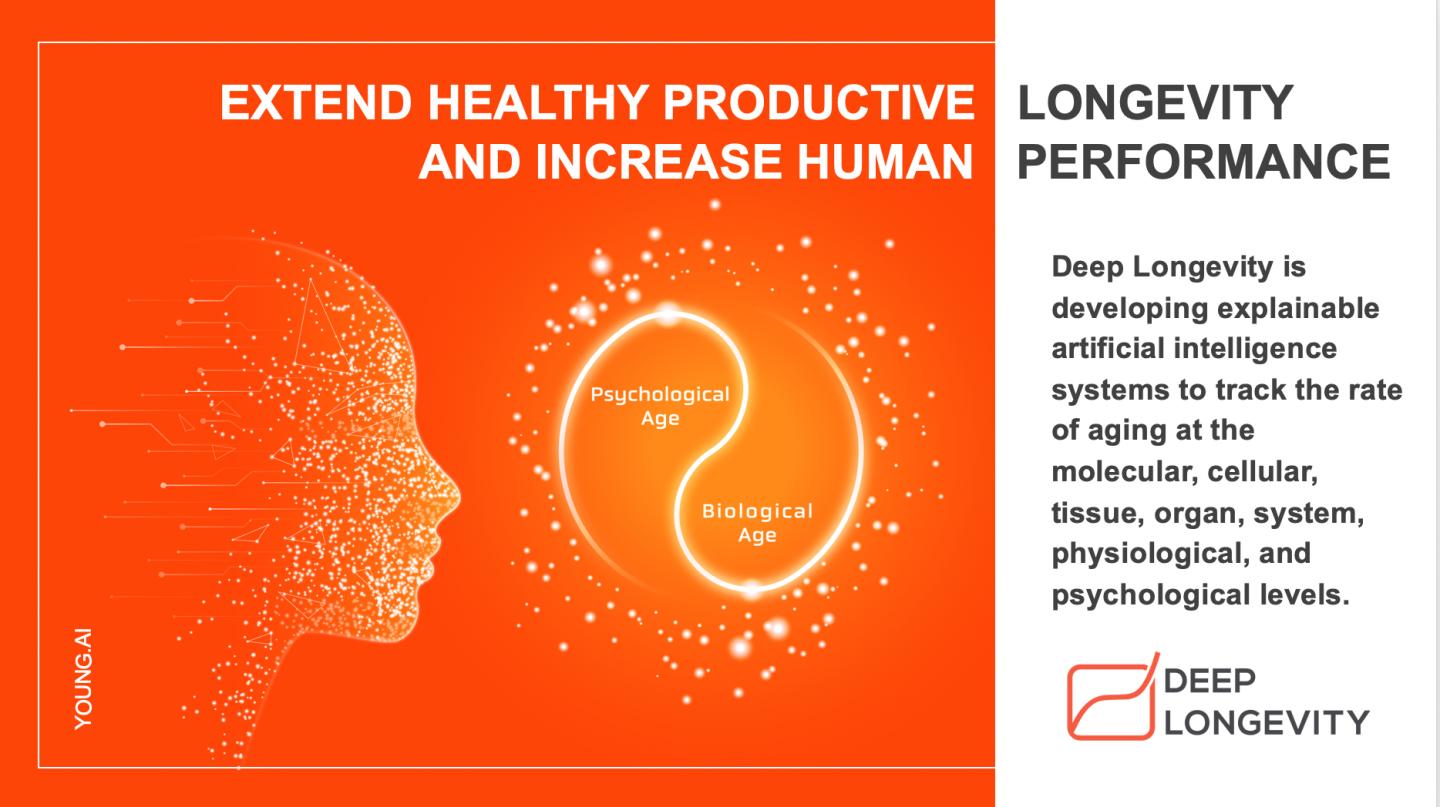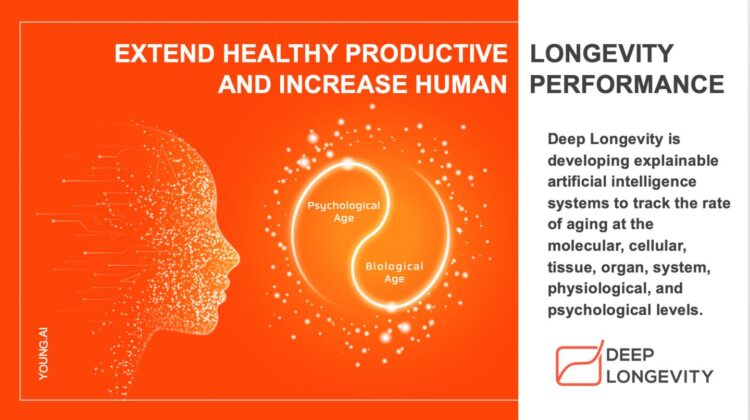Scientists at Deep Longevity published the first set of psychomarkers of aging developed using deep learning to track the changes in human psychology; the new PsychoAge and SubjAge aging clocks were linked to mortality risk

Credit: Mary Mitina
Today, Deep Longevity, a company developing artificial intelligence to track human aging and extend productive longevity, released the first AI-powered psychological aging clocks to analyze and interpret psychosocial factors in the context of aging. Deep Longevity researchers, joined by Dr. Peter Diamandis, the visionary physician, engineer, and entrepreneur, the founder of the XPRIZE Foundation and Singularity University published their study titled “PsychoAge and SubjAge: Development of Deep Markers of Psychological and Subjective Age Using Artificial Intelligence” in Aging.
Like other species following the classical evolutionary paradigm, humans are born, develop, reproduce, take care of their young, and then gradually decline and die. However, humans are conscious intelligent species and change their behavior, priorities, beliefs, and attitude, during life. Prior works on Socioemotional Selectivity Theory (SST) demonstrated that human life horizons can be manipulated and affect their behavior. To better understand the features that affect psychological age, and perceived age, and the mind-body connection in the context of aging, scientists at Deep Longevity decided to apply their skills in the development of deep biomarkers of aging to human psychology.
Biomarkers of aging that can accurately quantify the human aging process using various biological data types, commonly referred to as the “aging clocks”, are among the most important recent advances in the field of longevity research. For example, in November, Deep Longevity scientists published one such aging clock based on DNA methylation, which showed superior performance to all other comparable solutions.
Despite massive progress in aging clock technology, the psychological aspect of aging has been severely understudied. However, the new study on deep psychomarkers of aging is expected to substantially accelerate the progress in the psychology of aging. The recently published study aims to fill this gap by demonstrating two AI-based age predictors: PsychoAge (which predicts chronological age) and SubjAge (which describes personal aging rate perception). These models were trained on a collection of >10,000 questionnaires completed by people aged 25-75 years as a part of the MacArthur Foundation’s “Midlife in the United States (MIDUS)” study. The models presented in the publication were reworked into 15-question long surveys available at Young.AI to enable people to find out estimates of their psychological and subjective age.
The authors of the study verified the SubjAge on large independent datasets to discover that higher SubjAge is very predictive of all-cause mortality. More specifically, a person whose SubjAge is five years greater than the chronological age he or she reported is twice as likely to die as a person with normal age perception.
The authors also point out how SubjAge can be manipulated therapeutically to make patients feel younger and thus reduce their mortality risk. For example, developing openness to new experiences can reduce SubjAge prediction by seven years. Keeping the bar high, being productive and not backing away from difficult-to-reach goals will take another four years off of a person’s psychological aging clock.
“For the first time, AI can predict human psychological and subjective age and help identify the possible interventions that can be applied in order to help people feel and behave younger” said Alex Zhavoronkov, PhD, founder and CLO of Deep Longevity and co-author of the study. “One’s mindset may determine the decisions that ultimately affect their overall health. By identifying the psychosocial variables that underpin particular mindsets and behaviors, deep psychological clocks can serve as a powerful tool in promoting personal improvement, mental health, wellness, and a wide range of other health and therapeutic applications.”
In follow-up studies of psychological aging, Deep Longevity plans to explore differences in the perception of aging between men and women, examine psychosocial markers connected to mental health, and build an integrated model of mental-physical health crosstalk.
About Young.AI: Young.AI is an AI-powered longevity web platform & iOS app created by the product of Deep Longevity. Young.AI users can access a variety of aging analysis tools, including psychological and subjective age estimation, to reach productive longevity.
###
About Deep Longevity: Originally incubated by Insilico Medicine, Deep Longevity was acquired on 14 December 2020 by Regent Pacific Group Limited (SEHK:0575.HK), a specialist healthcare, wellness and life sciences investment group. Deep Longevity is developing explainable artificial intelligence systems to track the rate of aging at the molecular, cellular, tissue, organ, system, physiological, and psychological levels. It is also developing systems for the emerging field of longevity medicine, enabling physicians to make better decisions on the interventions that may slow down or reverse the aging processes. Deep Longevity developed the Longevity as a Service (LaaS) solution to integrate multiple deep biomarkers of aging dubbed “deep aging clocks” to provide a universal multifactorial measure of human biological age. http://longevity.
Media Contact
Mary Mitina
[email protected]
Related Journal Article
http://dx.





